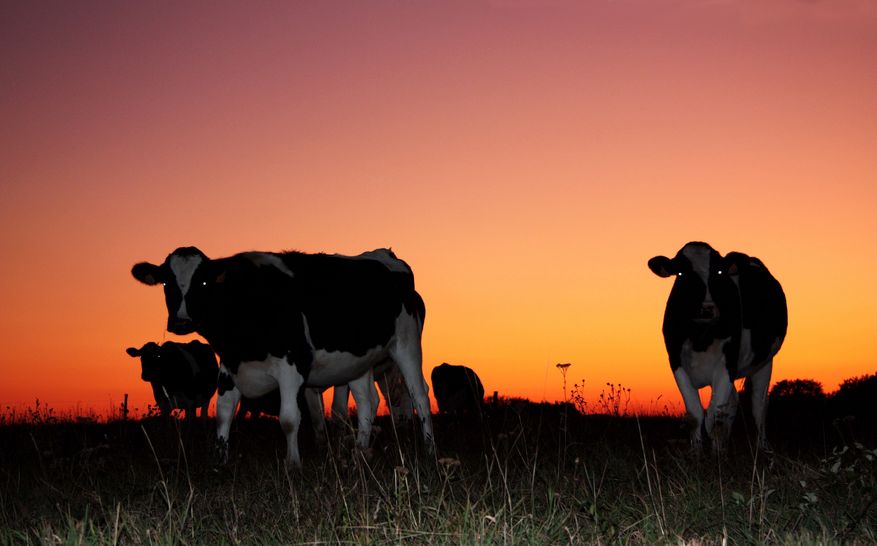NI farmers in 'planning limbo' due to ammonia

Northern Irish farmers caught in "planning limbo" due to the issue of ammonia have asked the local Government to find "workable and practical" solutions.
Northern Ireland is responsible for 12% of UK ammonia emissions, despite only having 3% of UK population and 6% of the land area.
The UK has obligations under European law and international treaties to reduce ammonia emissions. By 2020, the UK must reduce its ammonia emissions by 8% and by 2030, a 16% reduction must be achieved, both in comparison to 2005 levels.
But the Ulster Farmers’ Union (UFU) has said ammonia is becoming a "major stumbling block" for the future development of agriculture in Northern Ireland.
UFU president Ivor Ferguson said the lack of guidance and communication from the the Department of Agriculture, Environment and Rural Affairs (DAERA) on the issue has been a factor, and concerns remain regarding some of the emission factors used to determine ammonia levels.
Mr Fergusons said: “We know many of our members are caught in planning limbo because of ammonia. We understand their frustration and are working to find a resolution. It is an issue that has wider implications for the entire industry and has the potential to hinder development.”
Recently, DAERA shared their initial views on proposed mitigation measures for all farms across Northern Ireland to reduce ammonia.
The department is not considering de-stocking or de-intensification on farms as an option, despite pressure from environmental groups.
Mr Ferguson said: “This is not the way to tackle environmental issues and evidence from the Netherlands showed that their cow culling policy actually resulted in the development of larger, more intensive farms.
“Ultimately, we want to ensure any measures imposed on the industry are cost effective, deliver reductions in ammonia, and that financial support is provided by the Government. And we have the backing of many of our agri-food industry partners, who have agreed to work together with us on this.”
The UFU said a number of farmers have had applications stuck in the planning process because of ammonia levels. Mr Ferguson called it "unacceptable" and "mind boggling"..
“There are farmers who want to replace buildings or equipment with more efficient technologies that would ultimately reduce their ammonia levels. And they aren’t being granted planning permission because of ammonia,” said the UFU president.








